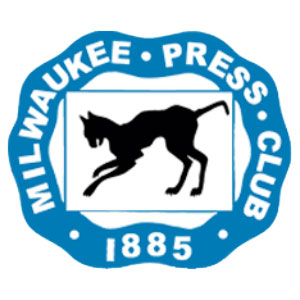Better Writing with Bart Pfankuch
The basis for almost all great journalism is the interview, the act of obtaining information from a source.
It sounds simple enough, right? Find someone with knowledge, call or visit them, ask them questions and record their responses.
But like everything in journalism, conducting quality interviews is a craft that requires great commitment, effort and skill to pull off at the highest level. It demands a never-ending process of learning and improving.

Interviews serve several important purposes. They deepen a reporter’s understanding of a topic; they provide opportunities to gather detail, color and specifics that enhance storytelling opportunities; they add context, nuance and perspective that documents and data cannot provide; and, ultimately, they generate credibility with readers by strengthening the writer’s voice, authority and understanding of a topic.
Effective interviewing is an art form; there is no one way to do it well and the approach depends on the subject and the topic. Here are some tips to conducting memorable and effective interviews that will generate quality material to make your reporting and writing shine.
Consider the Three Ps. Preparation, planning and persistence are critical. Great interviews only result from great preparation. Read up on sources and topics before the interview begins. Never go in cold.
Be ready for anything; don’t let sources take control of the interview. Ask a tough question three different ways if that’s what it takes to get a real answer.
Be patient to get more info. Asking good questions takes skill. Thought, anticipation and analysis are critical elements of asking the right question at the right time. Do not be in a hurry.
Discomfort is encouraged on both sides of interviews that become intense and go deep; it’s OK if you both squirm a bit.
Think about questions in advance and write them down. On breaking news, think on your feet and react to the situation to come up with high-impact questions. Maintain a tight focus on the work and don’t drift off.
Ask open-ended questions and those that push the source to go beyond the obvious and make them think deeply and reveal things they may not have intended to. Force them to reveal their feelings in addition to their knowledge.
Develop a connection with the subject and use a conversational style to lower their guard and make them feel more comfortable revealing the truth. Be open with the source to gain trust and credibility and build a rapport but not a friendship.
Create a flow for the interview that makes sense and feels right. Easy questions early, hard questions in the middle, follow-up queries at the end. Plan a strategy in advance.
Listen more than you talk. Avoid questions with long wind-ups. Give the source your full attention at all times.
Try to meet sources on their own turf. Better yet, be with them when they undertake an activity or go about their daily duties.
Use the “devil’s advocate” excuse to pose sensitive questions.
Share a bit of yourself to warm up an uncomfortable, uneasy or inexperienced source.
Feel free to acknowledge that you don’t know something or didn’t get it. Ask sources to explain complex topics in the simplest terms possible.
Always seek opportunities for photos and video. Do the full interview, then re-ask a good question while taking a photo or short video.
On breaking news, interview both the blowhards and the quiet people who stand on the edge of a scene. Find the highest-ranking officer on the scene and question them. Never stop asking questions of authorities until they walk away or tell you to stop. Have business cards handy to give to people and ask them to call you later. Act and think fast because opportunities are fleeting. Stay a little longer than you think necessary.
In press conferences, never ask your best question amid the pack. Try to get private time with the source or call them later with the gangbuster inquiry. Always break away from the pack.
Be kind and respectful at all times and don’t be afraid to use tasteful humor to break down barriers with an uncomfortable or new source.
Record interviews for accuracy, even if transcription takes more time and is painful. For phone interviews, put your phone on speaker and tape the call on a micro-recorder. When a key fact or great quote comes along, write down the time on the recorder in your notes to expedite finding it later.
Always keep open the opportunity for a follow-up interview. Arrange to speak again to clarify facts or run new findings by them. Get the cell phone number of all people you interview.
Put the phone down and turn the radio off while driving after an interview (windshield time is thinking time.) Right after an interview, go back and tidy up the notes and write up the information in story form.
Practice makes one proficient; becoming a student of the interview process and reviewing past results leads to constant improvement.
Bart Pfankuch is the content director for South Dakota News Watch, a non-profit online journalism group. Contact him at bart.pfankuch@sdnewswatch.org.



